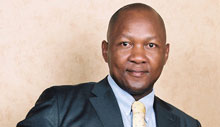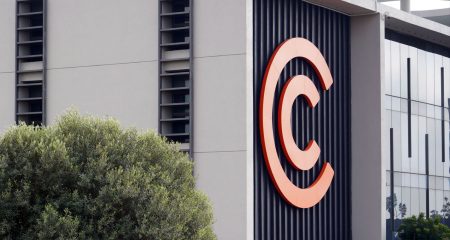
Andile Ngcaba, chairman of Convergence Partners and Dimension Data SA, says telecommunications companies must work together to build national, long-distance fibre networks in the country.
Dimension Data’s Internet Solutions, Convergence Partners and Cell C are collaborating to construct a R5bn, 12 000km national network under the FibreCo umbrella.
Vodacom, MTN, Neotel and Dark Fibre Africa are also building their own fibre-based networks across the country.
“At the moment, you see one company trenching on one side of William Nicol [a road in Johannesburg] and another company trenching on the other. Our country doesn’t really have economic resources to do this — we must be coordinated,” says Ngcaba.
He suggests that operators develop a central repository or map that details exactly where all the national, metro and suburban fibre is being laid. “This will help us ensure that we don’t overlap capacity. And if we want to swap capacity, we can do that.”
National, metro and access fibre or connectivity has been a bottleneck to providing Internet access across Africa. “We have all these new undersea cables landing on Africa’s shores, but we are still not seeing the benefit of these in homes,” says Ngcaba. “That’s why we started FibreCo.”
He says national and “last-mile” (access) networks will be an opportunity for providers for the next five to seven years. However, bringing national capacity to cities and towns is far more difficult than laying an undersea cable. According to Ngcaba, these are huge undertakings and take time to get the right approvals.
Again, he suggests the industry works together to develop a way of allowing all telecommunications providers to coordinate information to governments that will make the process slightly easier.
Ngcaba says the sooner the national fibre networks are connecting people in Africa the sooner Africa will be able to contribute to the growing Internet content and application space.
“Just take Nigeria as an example. Already it has far more content coming out of it than Bollywood. It could contribute to the online content space in Africa.”
However, he says it will be crucial for telecoms providers to ensure fibre access is priced right. “We can’t use the same economics that we did for copper,” he says.
He points to Seacom’s entry into the market as an example. “It launched at a tenth of the price of what was already available on Sat-3, and it’s still coming down,” he says.
He says infrastructure should become a utility. “Just like you don’t ask for permission at a conference to use the power outlet to charge your laptop, you won’t ask permission for access to the Internet.”
He says the content game is where the money will be made and Africa needs to have the access to participate. — Candice Jones, TechCentral
- See also: Ngcaba economics
- Subscribe to our free daily newsletter
- Follow us on Twitter or on Facebook




